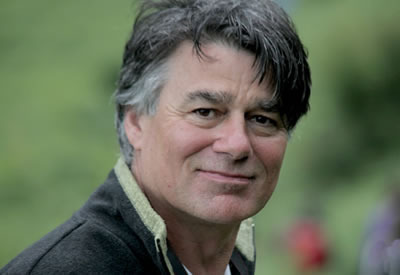
"In the middle of the road of my life I awoke in a dark wood, where the true way was wholly lost." When you find yourself suddenly without bearings, as Dante Alighieri voiced so well centuries ago, where will you look for guidance? Throughout the ages, teaches David Whyte, the language of poetry has held a special power to hazard ourselves boldly at the fierce edges of our lives. On Midlife and the Great Unknown, you will engage with poetic imagination as it was meant to be as your companion and guide for the challenging terrain of midlife. Join this Yorkshire-born poet and bestselling author to Radical simplification―an invitation to sit in silent reflection and observation • Using your poetic imagination to navigate life's cycles of loss and joy • Honoring who you are right now, including your skills and limitations, and more The language of poetry can emancipate you into the next phase of your existence, teaches David Whyte. It can help you break through obstacles and give you courage to take necessary risks. Drawing from the wisdom of fellow poets Rainer Maria Rilke, Emily Dickinson, and Seamus Heaney, Whyte invites you to boldly engage in a conversation with the second half of your life on Midlife and the Great Unknown Excerpted from the full-length audio course Clear Mind, Wild Heart .
Author

Poet David Whyte grew up with a strong, imaginative influence from his Irish mother among the hills and valleys of his father’s Yorkshire. He now makes his home in the Pacific Northwest of the United States. The author of seven books of poetry and three books of prose, David Whyte holds a degree in Marine Zoology and has traveled extensively, including living and working as a naturalist guide in the Galapagos Islands and leading anthropological and natural history expeditions in the Andes, Amazon and Himalaya. He brings this wealth of experience to his poetry, lectures and workshops. His life as a poet has created a readership and listenership in three normally mutually exclusive areas: the literate world of readings that most poets inhabit, the psychological and theological worlds of philosophical enquiry and the world of vocation, work and organizational leadership. An Associate Fellow at Said Business School at the University of Oxford, he is one of the few poets to take his perspectives on creativity into the field of organizational development, where he works with many European, American and international companies. In spring of 2008 he was awarded an honorary doctorate from Neumann College, Pennsylvania. In organizational settings, using poetry and thoughtful commentary, he illustrates how we can foster qualities of courage and engagement; qualities needed if we are to respond to today’s call for increased creativity and adaptability in the workplace. He brings a unique and important contribution to our understanding of the nature of individual and organizational change, particularly through his unique perspectives on Conversational Leadership.